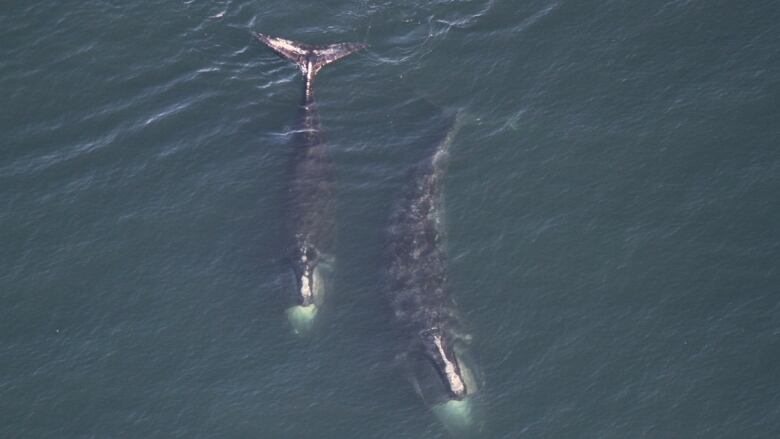Scientists haven't seen any North Atlantic right whale calves in usual areas
At least 18 North Atlantic right whales have been found dead in the last year in Canada and the U.S.

Scientists say they haven't spotted a single North Atlantic right whale calf in their usual breeding grounds, raising even greater concern over the fate of the endangered mammal.
Clay George, a biologist with Georgia's Department of Natural Resources, says the whales give birth off Georgia and Florida from December until the end of March, with the peak periodin January and February.
Buthe says coastal surveys have not turned up one mother-calf pair a grim discovery following one of the highest mortality rates for the imperilled animals in recent history.
At least 18 North Atlantic right whales representingabout four per cent of the critically endangered species, whose population is estimated to be below 500 were found dead in Canadian and U.S. waters over the last year after getting ensnared in fishing gear or hit by large vessels.
Jim Hain, senior scientist at Associated Scientists at Woods Hole, located near Falmouth, Mass., said the birth rate of these creatures has dropped by 40 per cent from 2010 to 2016, and scientists don't know why.
Scientists who monitor the whales' migration path between Canadian waters and the southern U.S. spotted just five calves born in 2017, as opposed to the 20 to 25 researchers saw every year through much of the 2000s.

Philip Hamilton, a research scientist at the Anderson Cabot Center for Ocean Life in Boston, saidthe apparent lack of calves could be linked to not enough food, a shift in the calving grounds or environmental changes that could be affecting the breeding females.
He said they have never seen a year without calves, making it particularly alarming combined with the high death toll.
With files from CBC's Cassie Williams












_(720p).jpg)


 OFFICIAL HD MUSIC VIDEO.jpg)
.jpg)



























































































